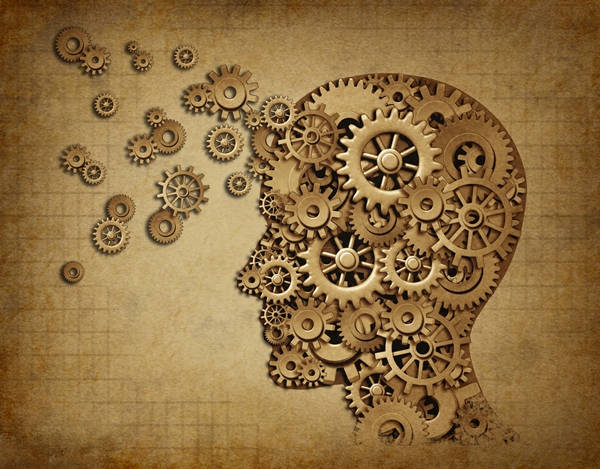 Did you know that there are natural vitamins that can enhance your brain function and boost memory retention?
Did you know that there are natural vitamins that can enhance your brain function and boost memory retention?
By taking the proper “brain-boosting” vitamins, you can rest assured that you’ll be supplying your noggin with the essential nutrients needed for it to function at optimal performance.
Let’s take a look at a few of the top brain-boosting supplements.
Top Brain Supplement No. 1: Vitamin C
Vitamin C is one of the safest and most popular vitamin supplements on the market today. It could help shorten the duration of a cold, improve components of the immune system, reduce the risk of heart disease and eye disease, and is even a primary component to many anti-aging skin care products—but what about vitamin C’s effects on the brain?
• Neurotransmitter production: Did you know that the average brain has over 100 billion neurons that communicate with each other through brain chemicals called neurotransmitters? Neurotransmitters can help you stay focused; they control your mood, sleep patterns, and more. Vitamin C is vital in the production of neurotransmitters.• Improves your mood: Vitamin C increases serotonin—this neurotransmitter helps maintain a “happy mood balance,” while a serotonin deficiency can lead to depression.• Increases intelligence: Vitamin C supplements can improve memory and mental functions. Research shows that higher blood levels of vitamin C can boost brain and memory function for people of all ages.• Reduces the risk of brain degeneration: Vitamin C can protect against certain age-related symptoms associated with dementia and Alzheimer’s disease.
• Defends against free radical damage: The brain is more prone to free radical damage, due to its high-oxygen usage. For proper biological function, there needs to be a healthy balance between free radicals and antioxidants. Vitamin C, thankfully, is one of the most effective antioxidant vitamins.
• Improves circulation: Vitamin C helps build collagen, the main protein of our connective tissues that helps keep the arteries flexible, which helps improve blood flow with oxygen and nutrients to the brain.
A daily dosage of 2,000 mg of vitamin C is recommended to take full advantage of its benefits.
Top Brain Supplement No. 2: Vitamin D
 This sunshine vitamin has been known to help protect against cancer, diabetes, heart disease, and osteoporosis. But let’s take a look at its effects on the brain:
This sunshine vitamin has been known to help protect against cancer, diabetes, heart disease, and osteoporosis. But let’s take a look at its effects on the brain:
• Brain development for babies: According to a 2012 study published in the journal Pediatrics, researchers discovered that a vitamin D deficiency during pregnancy could hinder the baby’s brain development. Researchers measured the vitamin D levels of approximately 2,000 pregnant women and studied the mental capabilities of their babies after they reached the 14-month-old mark. Children of vitamin D-deficient moms scored lower than children of mothers who took adequate levels of vitamin D during pregnancy.
• Helps fight age-related diseases: The brain needs sufficient nutrients to keep functioning, especially as we get older. Research shows that vitamin D can play an important role in improving or even preventing the effects of certain brain disorders, such as Alzheimer’s. Vitamin D has powerful anti-inflammatory and immune-boosting properties. Many brain tissues contain vitamin D receptors; when they are triggered by vitamin D, it can facilitate nerve growth in the brain.
• Improves symptoms of depression: In a 2015 study published in Psychiatry Research, researchers discovered that low levels of vitamin D are linked to symptoms of depression in people who are otherwise healthy. For this reason alone, researchers concluded that vitamin D supplementation is warranted.
More Brain Supplements
• Folate: Part of the vitamin B family, folate can increase your alertness, memory, and concentration. It will lower the blood levels of the chemical compound called homocysteine, which is well known for damaging brain cells.
• Magnesium: This mineral protects the brain from neurotoxins.
• Vitamin E: This essential vitamin contains a component called gamma tocopherol, which is a protective antioxidant that can help control neurodegenerative disorders.
Sources:
Mann, D., “Nourishing Your Noggin,” MedicineNet web site, September 22, 2004; http://www.medicinenet.com/script/main/art.asp?articlekey=55784.
Alban, D., “Brain Vitamins: Essential Vitamins for a Healthy Brain,” Be Brain Fit web site; http://bebrainfit.com/brain-vitamins-essential-healthy-brain/, last accessed June 15, 2015.
Storrs, C., “Vitamin D in Pregnancy Critical for Brain Development, Study Says,” HealthDay web site, September 17, 2012; http://consumer.healthday.com/cognitive-and-neurological-health-information-26/brain-health-news-80/vitamin-d-in-pregnancy-critical-for-brain-development-study-says-668675.html.
Mercola, J., “Link Between Vitamin D Deficiency and Dementia Confirmed,” Mercola.com, November 6, 2014; http://articles.mercola.com/sites/articles/archive/2014/11/06/vitamin-d-deficiency-dementia.aspx.
Davenport, L., “Vitamin D Levels Predict Depression,” Medscape web site, March 25, 2015; http://www.medscape.com/viewarticle/842008.
